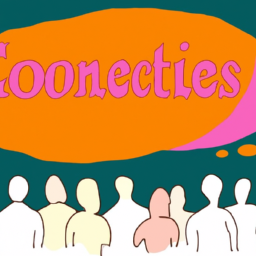The views expressed are those of the author and do not necessarily reflect the views of ASPA as an organization. By Michael R. Ford
Interest groups play a vital role in shaping public policy and influencing decision-making processes in democratic societies. Often referred to as advocacy groups, these organizations are formed by individuals with shared interests, beliefs, or goals, who work collectively to promote their agenda and bring about change. In this article, we will delve into the definition, significance, and influence of interest groups in the political landscape.
Founded in 1871 as a recreational group designed to "promote and encourage rifle shooting," the National Rifle Association (NRA) has grown into one of the most influential interest groups in the United States. With millions of members, the NRA advocates for gun rights, lobbies politicians, and mobilizes its supporters to protect and defend the Second Amendment. This example highlights the power and impact that interest groups can have on specific policy areas.
Interest groups span a wide range of issues, from environmental conservation and civil rights to healthcare and education. Regardless of their focus, these groups aim to shape public opinion, influence lawmakers, and ultimately affect policy outcomes. They achieve this through various means, including lobbying, public campaigns, grassroots mobilization, and strategic alliances. By organizing and amplifying their collective voice, interest groups can exert significant pressure on policymakers and ensure that their concerns are heard.
However, the influence of interest groups has been a subject of debate. Critics argue that wealthy special interests hold disproportionate power over policymakers, distorting democratic representation and favoring their own agendas. This concern raises questions about the balance between the interests of the general public and the influence of well-funded advocacy groups. It becomes crucial for policymakers to consider diverse perspectives and ensure a fair and transparent decision-making process.
On the other hand, interest groups provide an avenue for citizens to participate in the democratic process and have their voices heard. They offer a platform for individuals to join forces, pool resources, and advocate for change. Interest groups empower citizens to engage in political discourse, educate themselves on policy matters, and actively shape the direction of their society. In this sense, interest groups contribute to a vibrant and participatory democracy.
One of the challenges faced by interest groups is the public's lack of knowledge and understanding of policy and politics. Civic knowledge is essential for informed decision-making, and a well-informed citizenry is crucial for a healthy democracy. Interest groups can play a role in bridging this knowledge gap by providing educational resources, organizing public forums, and engaging with the community. By promoting civic education, interest groups can empower individuals to participate meaningfully in the democratic process.
Furthermore, interest groups often form special interest groups (SIGs) within their larger organizations. These SIGs provide valuable resources and networking opportunities for professionals who share a common interest or expertise. By connecting like-minded individuals, SIGs facilitate knowledge sharing, collaboration, and the development of innovative solutions to complex challenges. This networking aspect of interest groups strengthens the collective impact and effectiveness of these organizations.
In today's globalized world, interest groups are not limited to national boundaries. International interest groups, such as those focused on human rights, environmental conservation, or global health, work across countries and continents to address global challenges. These groups collaborate with governments, international organizations, and civil society to advocate for change on a global scale. Their work highlights the interconnectedness of issues and the importance of international cooperation.
In conclusion, interest groups are a fundamental part of the democratic process. They represent the diverse interests and concerns of individuals and communities, providing a platform for advocacy, influence, and change. While the influence of interest groups should be carefully balanced to ensure fairness and transparency, their existence enriches democracy by fostering citizen engagement, shaping public policy, and amplifying the voices of those who would otherwise be marginalized. Understanding and engaging with interest groups is essential for a well-functioning democracy that reflects the needs and aspirations of its citizens.
